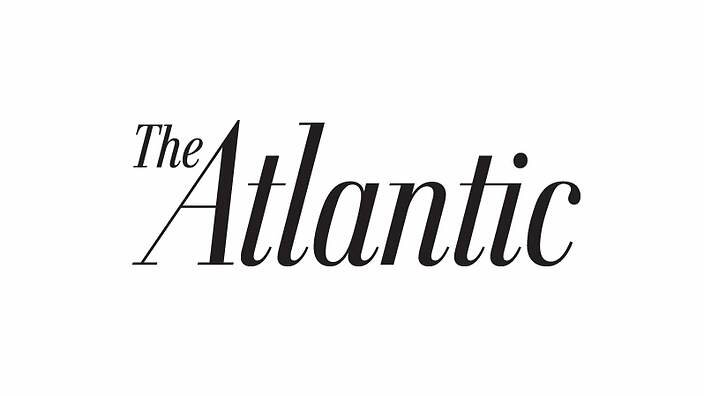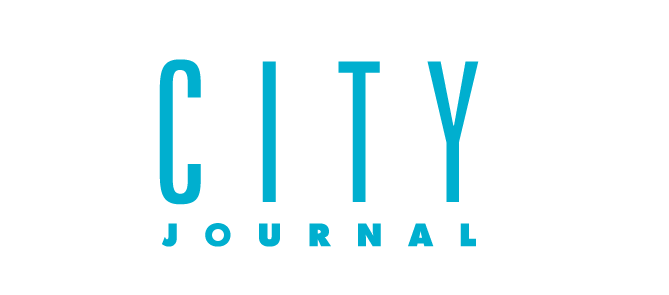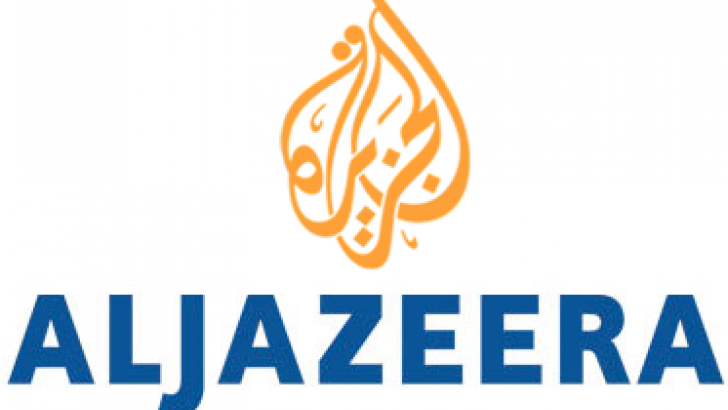
U.S. Charter Schools Tied to Powerful Turkish Imam
Over the past decade scores of charter schools have popped up all over the U.S., all sharing some common features. Most of them are high-achieving academically, they stress math and science, and one more thing: they’re founded and largely run by immigrants from Turkey who are carrying out the teachings of a Turkish Islamic cleric: Fethullah Gulen.
He’s the spiritual leader of a growing and increasingly influential force in the Muslim world — known as “The Gulen Movement” — with millions upon millions of disciples who compare him to Ghandi and Martin Luther King. Gulen promotes tolerance, interfaith dialog, and above-all: he promotes education. And yet he’s a mystery man — he’s never seen or heard in public — and the more power he gains, the more questions are raised about his motives and the schools.

120 American Charter Schools and One Secretive Turkish Cleric
“The charter school system in Ohio is broken beyond repair,” [former Gülen schoolteacher Matthew Blair] wrote in an email. “As it is, charter schools operate in a lawless frontier. Regulations are few and far between. Those that exist are consistently and consciously overlooked.”
The Gülen schools, he wrote, “are an excellent example” of this problem: “A Gülen organization controls the real estate companies that own their schools. They charge rent to their own schools and tax-payers foot the bill. They refuse to answer public records requests, falsify attendance records, and cheat on standardized tests. Yet, Ohio continues to grant them charters to operate.”
There are vulnerabilities built into the system, and one is a reduced oversight that enables schools to move vast amounts of public funds into private hands. The Gülen movement, with its foreign origins and mysterious leader, may make for a particular intriguing story.

Largest charter network in U.S.: Schools tied to Turkey
The movement portrays itself as a promoter of dialogue, tolerance, and understanding, but it is intensely controversial in Turkey. Controversies include the movement’s involvement with creationism and other issues connected to its conservative religious agenda, claims about framing political opponents, intimidating the press, infiltrating police and military forces, and being connected to the arrest of prominent journalists.
Concerns about this group have arisen in other countries, too, especially about their schools being used to recruit members, and spread Turkish culture and fundamentalist religious ideas.
Although the topic is extremely complicated and sensitive, there are good reasons for Americans to learn about the Gulen Movement and its involvement with so many charter schools. That, and the time to insist that U.S. public officials address this situation, has most definitely arrived.

Altruistic Society or Sect? The Shadowy World of the Islamic Gülen Movement
The houses of light are the foundation of the movement, where young “Fethullahcis” (as followers of Gülen are called) are taught to become loyal servants.
In his book “Fasildan Fasila,” (From Time to Time) Gülen writes that a pupil must be “on the go day and night” and cannot be seen sleeping. “If possible, he sleeps three hours a day, has two hours for other needs, and must devote the rest entirely to hizmet. In essence, he has no personal life, except in a few specific situations.”
Residents of the houses of light are also expected to proselytize, and Gülen even offers advice in his writings on how to go about it. The students, he writes, should befriend infidels, even if it means having to hide their true motives. “With the patience of a spider, we lay our web to wait for people to get caught in the web.”

Turkish faith movement secretly funded 200 trips for lawmakers and staff
A Turkish religious movement has secretly funded as many as 200 trips to Turkey for members of Congress and staff since 2008, apparently repeatedly violating House rules and possibly federal law.
A dozen different Gülen groups have sponsored congressional travel since 2008 and have filed forms with the House certifying that they were paying for the trips. The House Ethics Committee approved all the trips in advance based on the forms the Gülen groups submitted.
But a USA TODAY investigation found many of those disclosures were apparently false. Some of the Gülenist groups claimed to be certified nonprofits, but they do not appear in state or IRS databases of approved charities. Groups that did register with the IRS filed tax forms indicating that they did not pay for congressional travel. And five of the groups admitted to congressional investigators earlier this year that a Gülenist group in Turkey was secretly covering the costs of travel inside Turkey for lawmakers and staff.

Who Is Fethullah Gülen?
The belief that the movement commands or inspires blind obedience is not confined to those who have left it—its spokesmen are proud of it. In 2010, American journalist Suzy Hansen, writing for The New Republic, visited the Golden Generation Worship and Retreat Center in Saylorsburg, Pennsylvania, where Gülen lives. The president of the facility, Bekir Aksoy, explained to her that “our people do not complain. … They obey commands completely. … Let me put it this way. If a man with a Ph.D. and a career came to see Hocaefendi, and Hocaefendi told him it might be a good idea to build a village on the North Pole, that man with a Ph.D. would be back the next morning with a suitcase.”
In 2011, 292 of the 1,500 employees at the Gülen-inspired Harmony School of Innovation, a Texas charter school, were on H-1B visas, the school’s superintendent told the New York Times. The feds have investigated Concept Schools, which operate 16 Horizon Science Academies across Ohio, on the suspicion that they illegally used taxpayer money to pay immigration and legal fees for people they never even employed, an Ohio ABC affiliate discovered. The feds’ suspicion was confirmed by state auditors. Concept Schools repaid the fees for their Cleveland and Toledo schools shortly before the ABC story broke.

The many faces of Fethullah Gulen
The following words, uttered during a closed-door conversation between Gulen and his followers, were broadcast in 1999 on the Turkish television channel ATV:
“Until you have reached the correct saturation, until you have the strength to carry the world on your back, until you have laid claim to those things that represent power, until you have formed a powerful front in all of the constitutional institutions that are equivalent to the formation of the state in Turkey, every step you take will be a step too early.”
When this video was broadcast, the members of the Gulen movement claimed that this film had been doctored, and denied its authenticity. Doctored or not, there is no denying the parallel nature of these words with the situation in which Turkey finds itself today.
Thus, Gulen’s political perspective is centred on bringing the state cadre or departments under the domination of his group.
Turkey’s Thirty-Year Coup
In 1973, Ahmet Keleş, a high-school freshman in the central Turkish city of Kırıkkale, first heard a tape recording of a sermon by Gülen.
As Keleş was pulled into the movement he came to understand that it had a clandestine goal. “The only way to protect Islam was to infiltrate the state with our followers and seize all the institutions of government,” he explained. “The legal way to do it was by election, by parliament—but you couldn’t do it that way, because the military would step in. The only way to do it was the illegal way—to infiltrate the state and change the institutions from within.”
From then on, Keleş told me, all his energies were dedicated to preserving the Gülen secret while maintaining a positive façade. “This is the dual structure—it is in the genetic code of the organization,” he said.
Keleş told me that the chief targets of infiltration were the police and the judiciary. The schools and test-preparation centers were central to the plan. At the schools, acolytes were recruited at an impressionable age; at the centers, they were prepared for entrance examinations to the country’s bureaucracy. In many cases, “brothers” within government agencies fed answers to Gülenist candidates. Once the recruits were hired, fellow-Gülenists promoted them and furthered their careers.
The Good, the Bad, and the Gülenists
Gülen’s movement was known to have millions of followers and tens of thousands of members within the state bureaucracy. But no one was sure who they were. It was rumoured to have woven its supporters deep into the fabric of key institutions, including the police, the intelligence agencies, and the judiciary. But no one could pinpoint where its sympathisers were and how they worked. It was difficult to separate fact from fiction – myth from fear. In the eyes of many Turkish citizens, Gülen’s followers seemed able to tap the phones of even the most powerful people in Turkey and launch investigations and prosecutions on flimsy evidence according to whim. But no one could identify its leaders or trace their orders.
The group’s almost obsessive interest in law enforcement set it apart from all other religious orders in Turkey. In a famous sermon from the late 1990s, Gülen advised his followers to continue living incognito “inside the veins of the state” until enough power had been amassed: “You must move in the veins of the system, without anyone noticing your existence, until you reach all the power centres. […] You must wait until such time as you have gotten all the state power, until you have brought to your side all the power of the constitutional institutions in Turkey. […] Until that time, any step taken would be too early, like breaking an egg without waiting the full 40 days for it to hatch.”
Damaging Democracy: The U.S., Fethullah Gülen, and Turkey’s Upheaval
FETÖ is named after Fethullah Gülen, a Turk and religious figure who presides over a network of schools, test centers, media outlets, banks, and businesses that spans five continents. Gülen has resided in the U.S. for the past 17 years. Here, his followers run, among other enterprises, approximately 140 charter schools that bring in an estimated annual income of $500 million from American taxpayers. As The New York Times and other newspapers have documented, Gülen’s schools in the U.S. have been the subjects of repeated scandal and of FBI investigations into immigration visa abuse, kickback schemes, test fraud, and other alleged crimes and violations in numerous states including Texas, Pennsylvania, Georgia, Virginia, and Ohio. Indeed, these schools had grown so notorious for deceit and wrongdoing that the agenda-setting national television news program 60 Minutes aired an exposé on them in May 2012.
Journalists routinely describe Gülen’s compound in the Poconos as “secluded.” An equally accurate but more informative description might be “conveniently located.” Saylorsburg, Pennsylvania is close to the New York-Washington, DC corridor. By placing his compound there, Gülen has put himself in a location that both shields him from Turkish authorities and that is well-suited to managing his global network of schools, businesses, and faith organizations.
The mix of adjurations and warnings from Americans and Europeans to President Erdoğan and Prime Minister Binali Yıldırım to restrain the purges of suspected Gülenists were worse than useless. Aside from their poor timing and careless phrasing, they were based on two false premises. The first is that the post-putsch crackdown amounts to a “witch hunt”—a search for something that exists only in the imagination. If there is one thing that the putsch made clear, it is that organized underground forces really do exist and are ready and willing to use violence and illegal means to overthrow the government. The most immediate lesson Erdoğan and others in the government can take from the failed coup attempt is not that they should ease up and err on the side of leniency and grant suspects the benefit of the doubt, but precisely the opposite: they have been too gentle with the Gülenists, and it nearly cost them their lives.
EU-Turkey Relations After July 15: Turning the Page
The reaction of EU institutions and member states to the coup was slow and cautioned against overreach in the aftermath. Among most Turkish politicians (oppositional CHP and HDP excluded) there is a firm impression that this was feeble and unsupportive at best. Europe is perceived as having not fully understood the significance of what happened and the consequences it could have had.
Some see European decision makers’ lack of sympathy as expressing tolerance of the coup attempt, and as a visible manifestation of Europe’s broader attitude to Turkey. This was described by one high ranking Turkish official as “like a matryoshka doll – it has Erdoganophobia on the outside, then xenophobia and racism, then anti-semitism, and Europhobia at the core.”
On the other hand, in European capitals Turkey is seen in increasingly hostile terms. Even before the coup many Europeans were drawing comparisons between the tendencies towards over-centralisation of power of the Turkish and Russian Presidents.
When it comes to counter-terrorism, Turkey’s legitimate concerns should be addressed by the EU. No European country is as endangered and affected by terrorism today as Turkey, whether from ISIS, the PKK or the Gulen movement.





